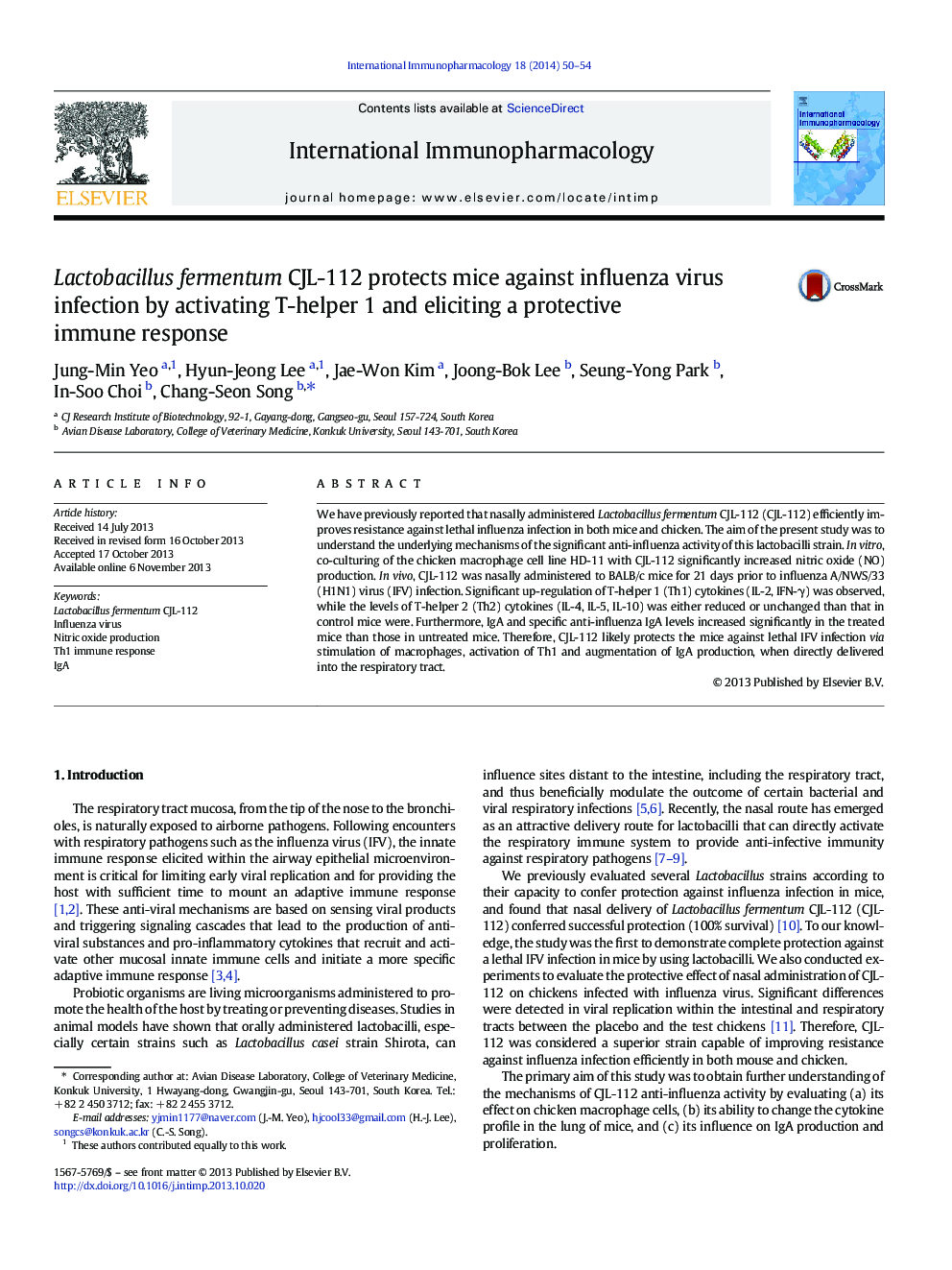| Article ID | Journal | Published Year | Pages | File Type |
|---|---|---|---|---|
| 5832967 | International Immunopharmacology | 2014 | 5 Pages |
Abstract
We have previously reported that nasally administered Lactobacillus fermentum CJL-112 (CJL-112) efficiently improves resistance against lethal influenza infection in both mice and chicken. The aim of the present study was to understand the underlying mechanisms of the significant anti-influenza activity of this lactobacilli strain. In vitro, co-culturing of the chicken macrophage cell line HD-11 with CJL-112 significantly increased nitric oxide (NO) production. In vivo, CJL-112 was nasally administered to BALB/c mice for 21 days prior to influenza A/NWS/33 (H1N1) virus (IFV) infection. Significant up-regulation of T-helper 1 (Th1) cytokines (IL-2, IFN-γ) was observed, while the levels of T-helper 2 (Th2) cytokines (IL-4, IL-5, IL-10) was either reduced or unchanged than that in control mice were. Furthermore, IgA and specific anti-influenza IgA levels increased significantly in the treated mice than those in untreated mice. Therefore, CJL-112 likely protects the mice against lethal IFV infection via stimulation of macrophages, activation of Th1 and augmentation of IgA production, when directly delivered into the respiratory tract.
Related Topics
Life Sciences
Immunology and Microbiology
Immunology
Authors
Jung-Min Yeo, Hyun-Jeong Lee, Jae-Won Kim, Joong-Bok Lee, Seung-Yong Park, In-Soo Choi, Chang-Seon Song,
